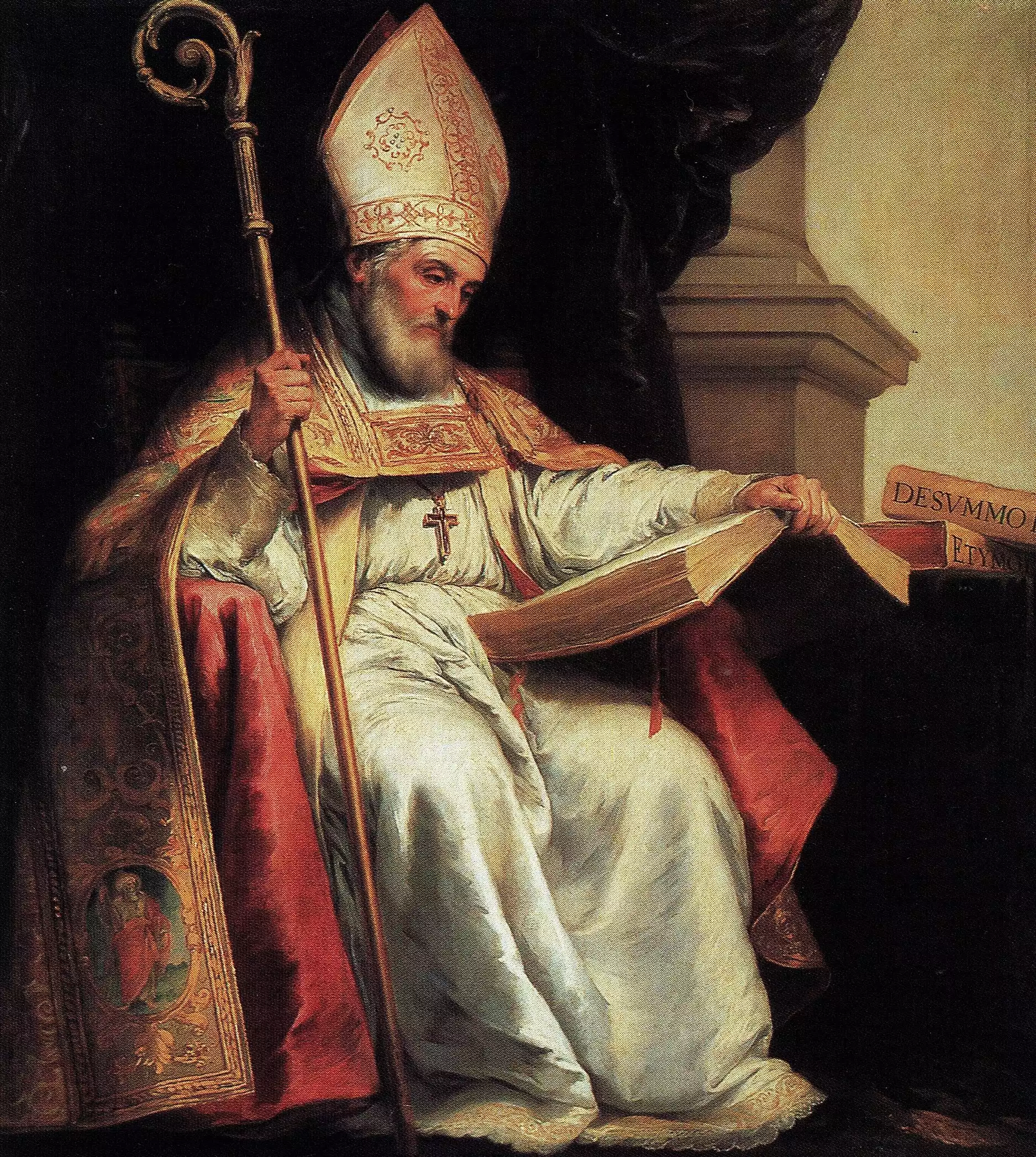
Born in the heart of Visigothic Spain, Isidore of Seville (circa 560–636 AD) emerged as a towering intellect of the early Middle Ages. Esteemed as a scholar, he authored the monumental work “Etymologiae,” a compendium that aimed to preserve the entirety of human knowledge. His efforts not only fostered the intellectual life of medieval Europe but also sowed the seeds for future scholarly pursuits.
The Genesis of Genius – Isidore’s Formative Years
In the vibrant tapestry of Visigothic Spain, Isidore of Seville’s early life unfolded, marked by intellectual curiosity and a thirst for knowledge. Born into a family distinguished by piety and erudition, Isidore was the youngest of three siblings, all of whom would leave indelible marks on the ecclesiastical and scholarly realms. His brother, Leander, who later became the Archbishop of Seville, played a pivotal role in shaping Isidore’s intellectual and spiritual development.
The atmosphere of Isidore’s household buzzed with scholarly dialogue and religious discourse, laying a robust foundation for his future endeavors. Though the specifics of his early education remain shrouded in the mists of history, it is evident that the young Isidore was immersed in a milieu replete with theological and philosophical teachings. His voracious appetite for learning led him to delve into a myriad of subjects, ranging from the liberal arts to the intricate doctrines of Christianity.
Isidore’s upbringing was not only academic; it was also deeply spiritual. The Visigothic kingdom, a crucible of cultural and religious exchange, provided a fertile ground for his theological inquiries. Amidst this confluence of ideas, Isidore began to craft his identity, intertwining scholarly rigor with devout faith.
As he transitioned from a curious learner to a scholar in his own right, Isidore started to exhibit a profound understanding of the complexities of human knowledge. His keen intellect, coupled with an unwavering dedication to the preservation of learning, set the stage for his later achievements. It was in these formative years that the seeds of his magnum opus, “Etymologiae,” were sown, promising to burgeon into a beacon of enlightenment in the medieval era.
Etymologiae – Illuminating the Dark Ages
As the luminary of Seville, Isidore embarked on a monumental task: to compile a vast repository of human knowledge, a feat that would crystallize in the form of “Etymologiae.” This encyclopedic endeavor, unprecedented in scale and ambition, was driven by Isidore’s conviction that education was the linchpin of spiritual and intellectual salvation. With a vision to preserve and disseminate the classical heritage, he ventured into uncharted territories, synthesizing and elucidating every conceivable subject from grammar to geography, from medicine to metaphysics.
“Etymologiae” was not merely a compilation; it was a tapestry woven from the diverse threads of ancient wisdom, meticulously categorized into twenty books. Each volume was a gateway to a distinct realm of knowledge, inviting the reader on a journey through the vast landscapes of learning. Isidore’s methodology was groundbreaking. He ventured beyond mere compilation, infusing his work with critical insights and interpretations, thereby laying the groundwork for a methodical approach to knowledge that would echo through the corridors of time.
The impact of “Etymologiae” was profound and far-reaching. In an era colloquially dubbed the Dark Ages, Isidore’s opus was a beacon of enlightenment, guiding scholars and clerics alike. Its influence permeated through the medieval scriptoria, catalyzing the intellectual revival that preluded the Renaissance. Isidore’s legacy was not confined to the parchments that bore his words; it was embedded in the very fabric of Western intellectual tradition, shaping the contours of thought and scholarship for centuries to come.
In the annals of history, Isidore of Seville’s legacy endures as a testament to the unquenchable human spirit for knowledge. His “Etymologiae” bridged worlds, marrying the ancient with the medieval, and sowing the seeds for future intellectual endeavors. Isidore’s life and work remain a beacon, guiding the quest for wisdom and understanding.
References
Barney, Stephen A. “The Etymologies of Isidore of Seville.” Cambridge University Press, 2006.
Henderson, John. “The Medieval World of Isidore of Seville.” Oxford University Press, 2007.
Wright, Roger. A Saint at the Crossroads: Isidore of Seville and His Times.” Boydell Press, 2012.
